Home • Microfinance • Article
Running not one, but a few businesses
December 8, 2014
As a Kiva Fellow, I’ve had the delightful opportunity to visit a number of Kiva borrowers in their homes or places of work. These treks consisted of hopping in a car and hanging on while the driver used every opportunity to cut off vehicles in front of us; hopping on the back of a motorbike and weaving through city streets or driving down dirt roads, taking in the stunning views of fields outside the city; or taking a public bus where a conversation ensues with random passengers revolving around who the foreigner is (me). But more incredible than the ride itself was meeting the borrowers. It amazed me how often borrowers who were women not only kept up their homes, took care of their children, but also maintained not one, but multiple businesses; a strategy to ensure steady income every month, where one business could fill the gap of another if it falls short of generating sufficient income.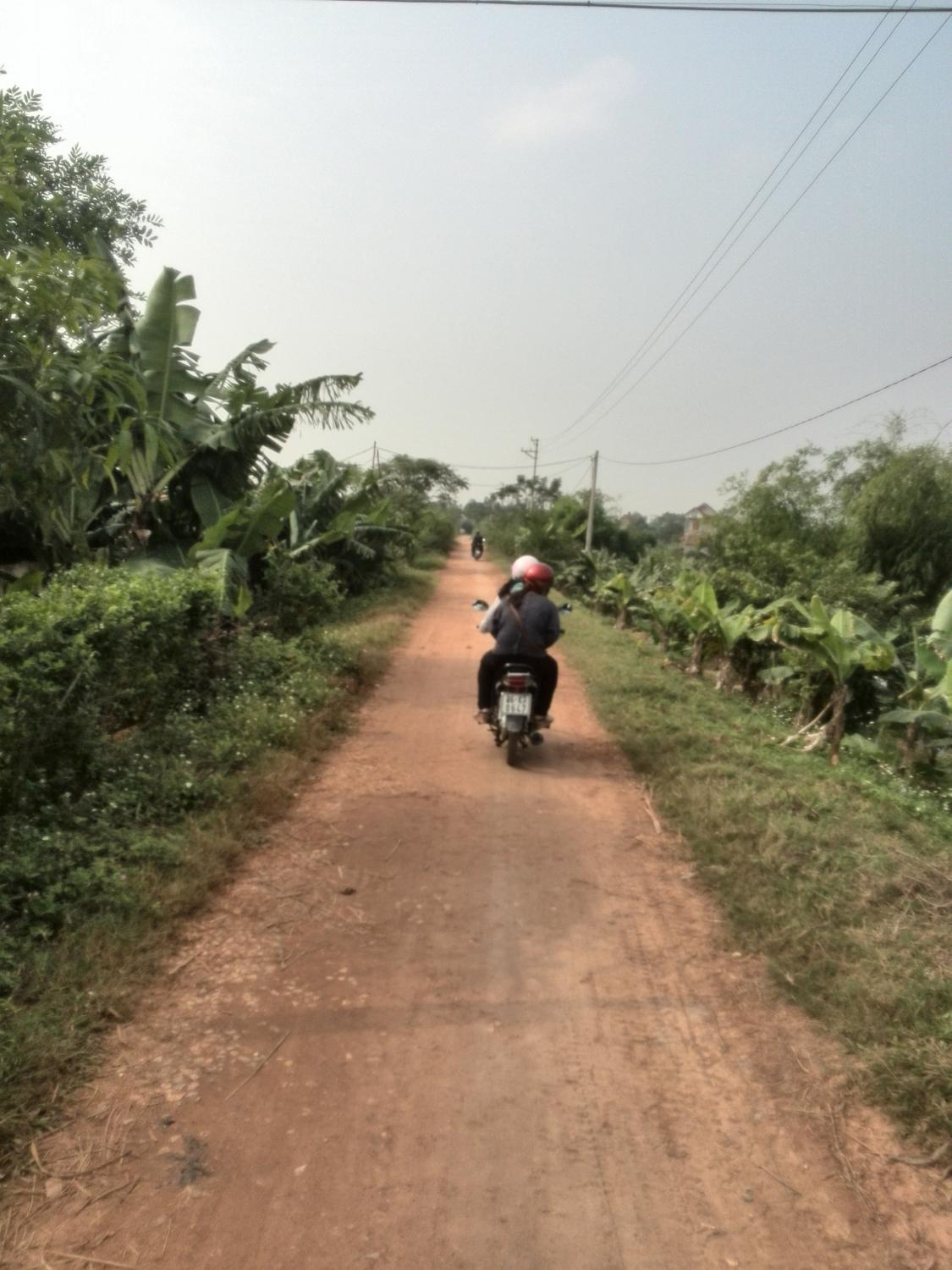 On our way to visit a borrower
On our way to visit a borrower
One borrower, Mrs. Yen, particularly stood out to me. She is a forty-year-old mother of three who farms rice, raises fish and poultry, in addition to weaving baskets, selling her products in local markets. Mrs. Yen lives in a village with a cluster of uninhabited hills nearby. During the week, Mrs. Yen and other women from her neighborhood take turns hiking up to these hills to collect bamboo. Early each morning, around 3AM, a group of women heads to the hills to gather bamboo and comes back with bundles of stems. After the bamboo is brought back to the village, it is cut in half through its longer axis, then those halves are halved again. The resulting long strips of bamboo can then be bent to weave baskets, while retaining the sturdy properties of the plant. Mrs. Yen can weave eighty baskets in one day. Sometimes her kids come along and help, adding another 20 baskets to her batch. These baskets are then sold in markets in neighboring districts.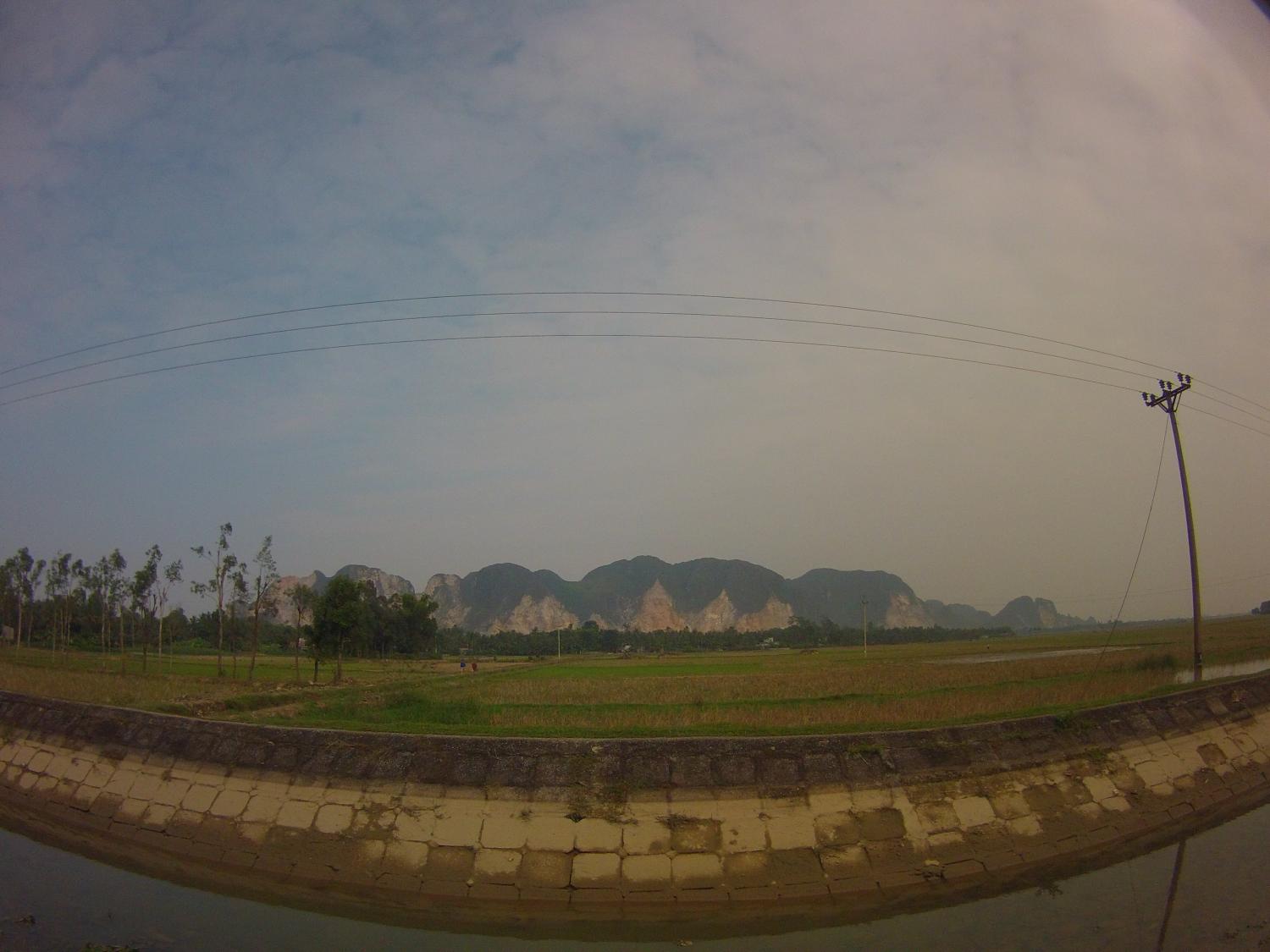 The hills where Mrs. Yen and her neighbors collect bamboo
The hills where Mrs. Yen and her neighbors collect bamboo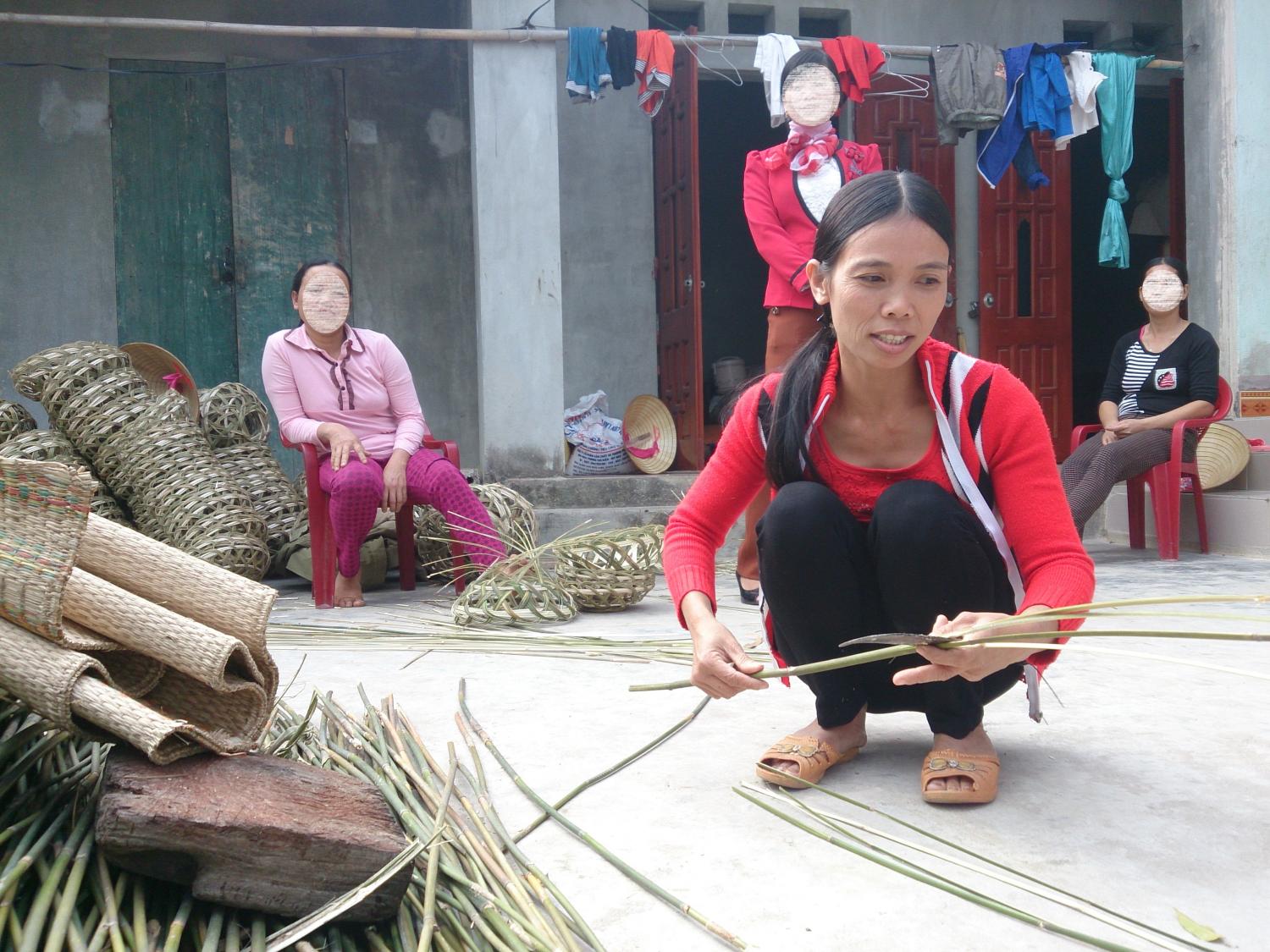 Mrs. Yen slicing bamboo
Mrs. Yen slicing bamboo 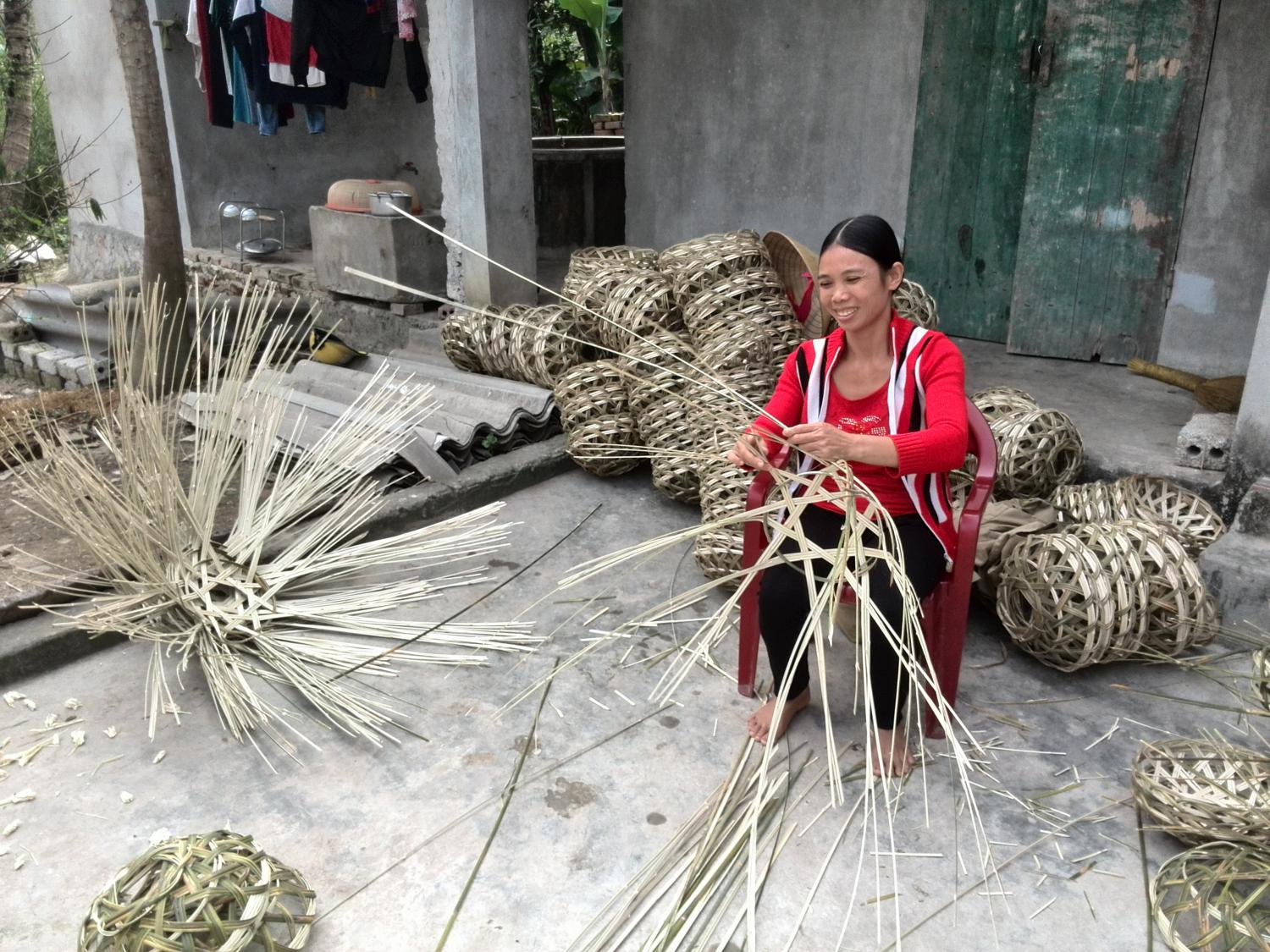 Quick basket-weaving lesson
Quick basket-weaving lesson
Raising poultry comes with uncertainty about whether the number of animals that the poulterer starts out with will live to be healthy adults which can be sold for a profit. Similar uncertainty comes with growing crops, which may not yield as much produce as expected.
Mrs. Yen’s loan, funded by Kiva lenders, not only afforded her the means to diversify her sources of income, but also allowed her to invest in supplies that created a safe environment for her poultry. Additionally, she purchased adequate feed for her poultry, further improving their chances of surviving in to adulthood and retaining their profitability for her family.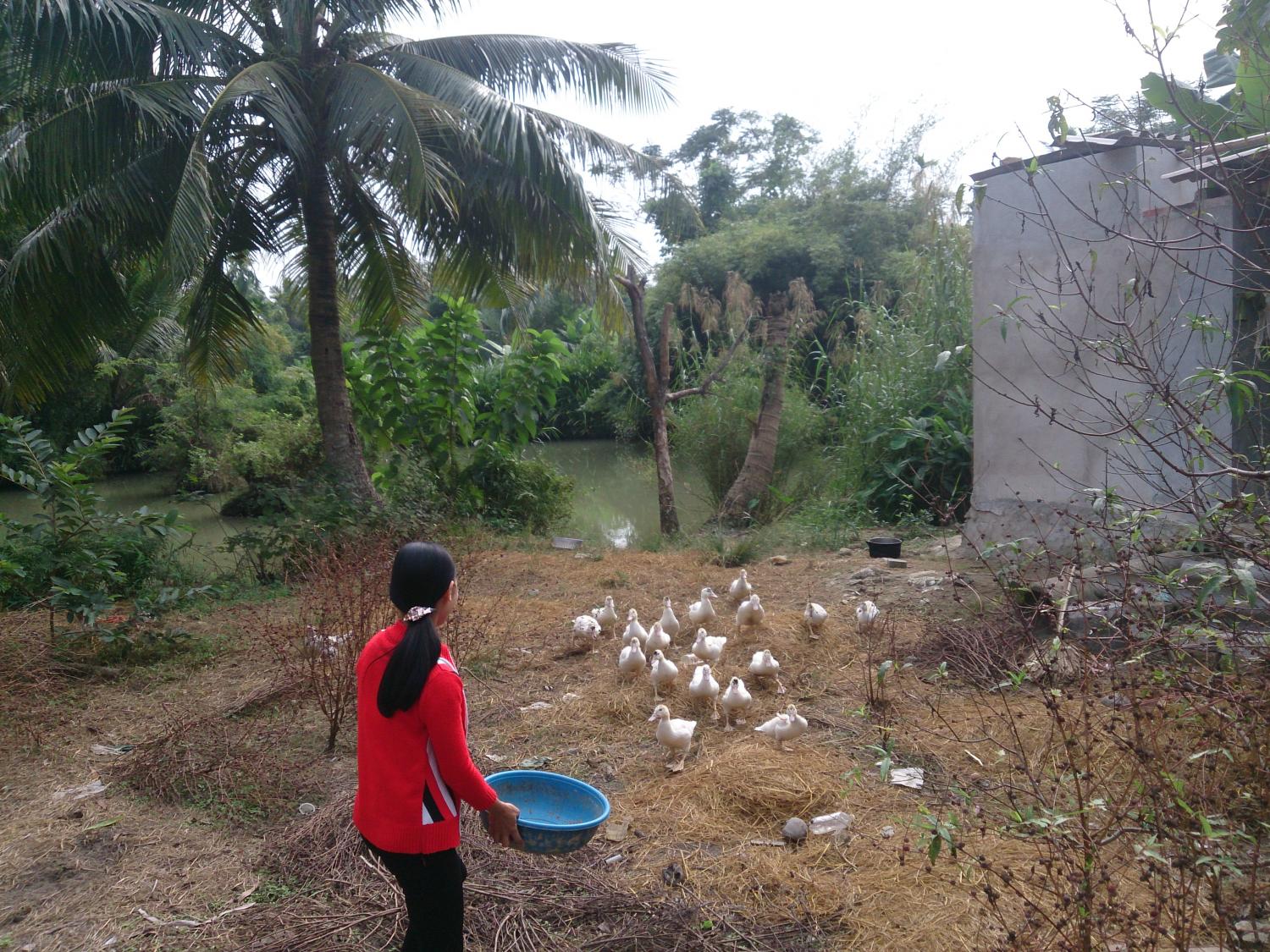 Mrs. Yen setting out food for her ducks and chickens
Mrs. Yen setting out food for her ducks and chickens
 On our way to visit a borrower
On our way to visit a borrowerOne borrower, Mrs. Yen, particularly stood out to me. She is a forty-year-old mother of three who farms rice, raises fish and poultry, in addition to weaving baskets, selling her products in local markets. Mrs. Yen lives in a village with a cluster of uninhabited hills nearby. During the week, Mrs. Yen and other women from her neighborhood take turns hiking up to these hills to collect bamboo. Early each morning, around 3AM, a group of women heads to the hills to gather bamboo and comes back with bundles of stems. After the bamboo is brought back to the village, it is cut in half through its longer axis, then those halves are halved again. The resulting long strips of bamboo can then be bent to weave baskets, while retaining the sturdy properties of the plant. Mrs. Yen can weave eighty baskets in one day. Sometimes her kids come along and help, adding another 20 baskets to her batch. These baskets are then sold in markets in neighboring districts.
 The hills where Mrs. Yen and her neighbors collect bamboo
The hills where Mrs. Yen and her neighbors collect bamboo Mrs. Yen slicing bamboo
Mrs. Yen slicing bamboo Quick basket-weaving lesson
Quick basket-weaving lesson Raising poultry comes with uncertainty about whether the number of animals that the poulterer starts out with will live to be healthy adults which can be sold for a profit. Similar uncertainty comes with growing crops, which may not yield as much produce as expected.
Mrs. Yen’s loan, funded by Kiva lenders, not only afforded her the means to diversify her sources of income, but also allowed her to invest in supplies that created a safe environment for her poultry. Additionally, she purchased adequate feed for her poultry, further improving their chances of surviving in to adulthood and retaining their profitability for her family.
 Mrs. Yen setting out food for her ducks and chickens
Mrs. Yen setting out food for her ducks and chickensPREVIOUS ARTICLE
Links We Like: New things, ancient things, all exciting things →NEXT ARTICLE
Three Bright Ways to Sell a Solar Lamp in Indonesia →













